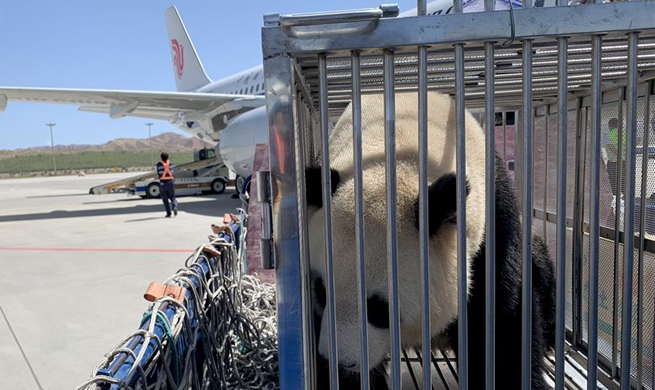UNITED NATIONS, June 3 (Xinhua) -- Africa still faces many challenges in HIV prevention and treatment, Kenya's UN ambassador, Lazarus Amayo, said on Monday on behalf of the African Group at the United Nations.
Knowledge about HIV prevention among young people has remained stagnant over the past 20 years. High rates of HIV infection continue among adolescent girls and young women, many of whom become mothers, the ambassador told a UN General Assembly meeting on HIV and AIDS on Monday.
In West and Central Africa, he said, insufficient domestic funding, weak health systems, formal and informal user fees for health care, humanitarian situations and high levels of stigma and discrimination have undermined efforts to scale up HIV testing and treatment. Among all people living with HIV in the region in 2017, less than half knew their HIV status, 40 percent were accessing antiretroviral therapy and less than one-third had suppressed viral loads, compared with the UN targets of 90 percent for diagnosis, treatment and viral suppression by 2020.
In all regions, combinations of primary HIV prevention services tailored to meet the needs of people at highest risk of infection are rarely provided on an adequate scale and with sufficient intensity. Treatment coverage in Eastern Europe and Central Asia, the Middle East and North Africa, and West and Central Africa are alarmingly low, he noted.
He called on countries to eliminate stigma and discrimination on HIV and AIDS and lift HIV-related restrictions on entry, stay and residence.
Migration can place people in situations that increase their risk of acquiring HIV. This vulnerability can be exacerbated in countries with travel restrictions on people living with HIV because such restrictions discourage migrants from accessing HIV testing and treatment care services. Refugees and migrants may also be subject to mandatory HIV testing and restrictions on freedom of movement or other rights violations for those testing positive, said the ambassador.
People living with HIV who are forced to flee their homes are also in extreme danger of treatment disruption and AIDS-related morbidity and mortality. Food insecurity during emergencies can also affect treatment adherence and result in HIV-related risk behavior, such as prostitution, he said.
"Since Africa is characterized by conflict, civil strife, climate-induced disasters, which force displacement in African, we are concerned that the number of affected people living with HIV may be increasing as the frequency and magnitude of humanitarian emergencies increase."
HIV is the fourth leading cause of death in low-income countries and the second leading cause of death in sub-Saharan Africa, he said.
















